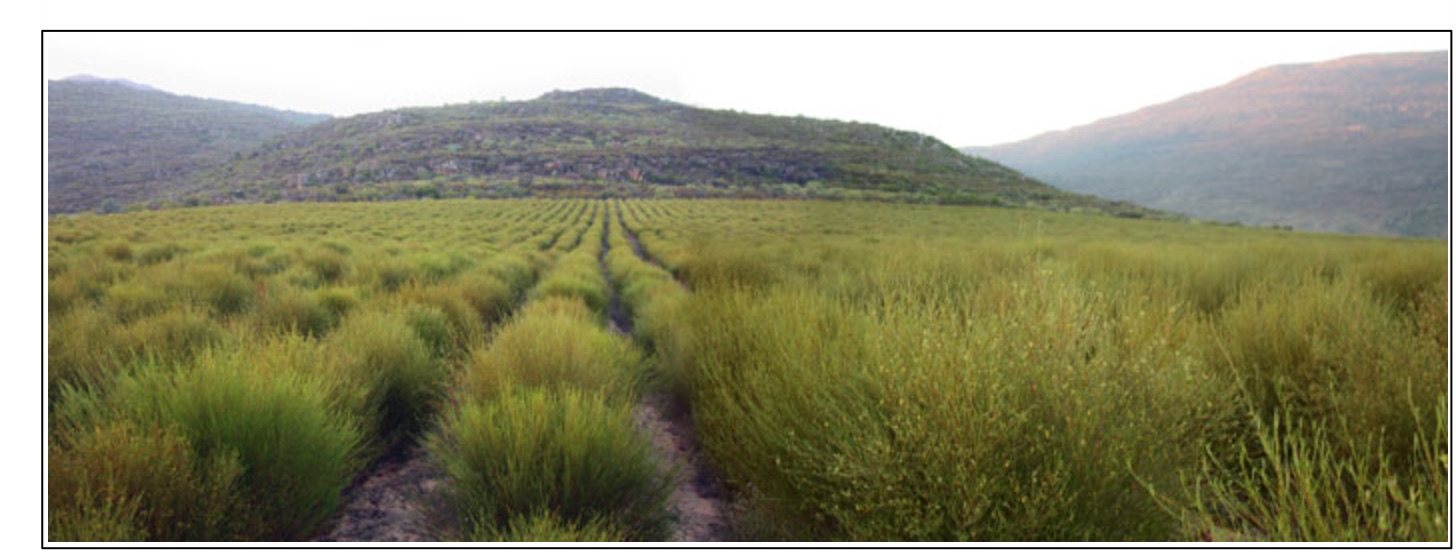Like me, you may not have heard of rooibos (pronounced roy boss) tea.
Investigating, I discovered a story that took me far beyond a beverage.
Indigenous People’s Tea
Our story starts more than 300 years ago in South Africa’s Cederberg Mountains where the KhoiSan people recognized the Aspalathus Linearis plant’s healing qualities. From there, we can go to three men and three years.
Legend tells us that in 1772, a European botanist, Carl Thunberg, climbed a mountain to find the wild tea plants. Seeing the power of the plant, he spreads the word. As a result, European settlers started drinking his tea.
Next, leaping to 1904, we see a Russian immigrant, Benjamin Ginsberg, take the next step. Joining his tea trading family in South Africa, he becomes the ‘father” of commercial Rooibos Tea when he markets it as an herbal alternative to traditional tea.
Lastly, we need the scale that a botanist brings during the 1930s when Dr Le Fras Nortier figures out how to mass produce the crop through the seed germination technique he develops.
Today, exported to 50 countries but especially the U.S., Germany, the U.K., Japan, and the Netherlands, the South African crop is worth $27 million annually. In addition, like Parmigiana is only from Parmigiana and Champagne from Champagne, the EU gave rooibos tea protected origin status.
At this point, we can ask what we owe to the indigenous people that gave us most of what we know about the plant. The answer in South Africa was repayment.
Our Bottom Line: Indigenous Payback
You can see that we are dealing with a bigger issue here.
An indigenous people created value. Knowing another group exploited it, the South Africans were the first to figure out a palatable solution. Identifying who would repay the KhoiSan, the current farners agreed they had an obligation. After years of negotiating, they solved how much by selecting the narrowest part of the supply chain. At the point where the crop converges on the processors, you have just 10 factories. There, they could determine the value of the tea and levy a 1 1/2 percent fee.
Recently, the KhoiSan people received their first $725,000 check. The agreement’s participants believe all can benefit because the ethics and fair trade of the deal will become a part of their brand.
As economists, we can see that Nobel Prize laureate Elinor Ostrom was right in saying communities don’t necessarily need a government mandate for wise negotiating. But, even more crucially, we have just told the story of the first industy-wide agreement for benefit sharing with an indigenous people.
My sources and more: More than any other podcast, the BBC’s are my favorites. Yesterday, again confirming their interest and quality, I learned about rooibos tea from their Business Daily report. Then, I found where the main grower describes (biased but sounds accurate) the history and science. And finally, completing the puzzle, this BBC article had the repayment details.







What a great and very important article! I’ll be sharing this widely. Thank you!
Thank you.